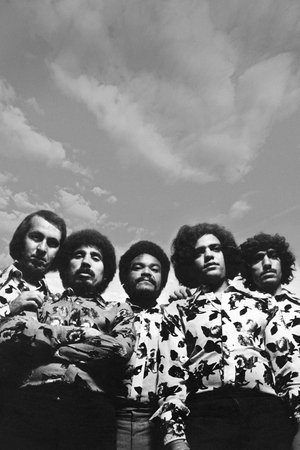Nass El Ghiwane (b. 1973)
Alias:
ناس الغيوان
Birthplace:
Casablanca, Morocco
Born:
January 1, 1973
Nass El Ghiwane (نَاس ٱلْغِيوَان) is a Moroccan musical group, born in the 1970s in Casablanca in the popular Hay Mohammadi district, initially composed of the six musicians Laarbi Batma, Allal Yaâla, Moulay Abdelaziz Tahiri (Pioneer of the Nass El Ghiwane movement and Jil Jilala), Omar Sayed, Raifak Redouane, Mohamed Akhdim and Boujmîa Hagour. Nass El Ghiwane's repertoire is drawn from the melting pot of Moroccan culture and poetry, but also from Sufi texts from great religious figures of Islam. Thanks to their committed and poetic lyrics reflecting the discomforts of Moroccan youth of the time and their powerful rhythms, played using traditional instruments, they revolutionized Moroccan and Maghreb music and left an indelible mark on the landscape. culture of the country. The famous American director Martin Scorsese called the group the “Rolling Stones of Africa”. Peter Gabriel, who will compose the soundtrack for his film The Last Temptation of Christ, will be inspired by the song "Ya Sah" for one of his compositions, and will then appear in the album "Passion - Sources", which is a compilation, companion of the original soundtrack disc “Passion”, with different pieces of traditional music from the Arab and Oriental world that inspired it. They were inspired by songs of the Aïta style (Echems Ettalaa, Elhassada, Sif El Bettar, Ghadi Fhali...), Melhoun (Han wa Chfeq, Mezzine Mdihek, Qalet...), Gnaoua (Ghir Khoudouni, Lebtana, Mahmouma, Essadma, Jralek Ouach...), Hamadcha (Laayate Aalik) and Jilala (Allah ya Moulana, Haoulouni) in order to create music combining the traditional of Morocco with modern subjects. Officially apolitical, the group's commitment and protest spirit always shine through, in a subtle and colorful way. Rarely directly, but rather through pamphleteering fables. However, in 1972, the group was arrested by the police in the middle of a concert for having sung "Sabhane Allah sifna oula chtoua", (oh my God, our summer has become winter), with the obligation to explain on PV the meaning of their texts . Their commitment goes beyond the Moroccan framework, and echoes the unease of the youth of Arab countries, extending to international issues, as in the song “Sabra wa Chatila”, published in 1983, which returns to the massacre a year earlier. , Palestinian civilians in the refugee camps of the same name in Lebanon. Among the successive members of Nass El Ghiwane we find Moulay Abdelaziz Tahiri: Founder of the group, Mahmoud Saadi, Allal Yaâla, Boujmîa Hagour, Larbi Batma, Mohamed Akhdim, Abderhmane Kirouche (known as Paco), Raifak Redouane, Rachid Batma, Hamid Batma, Abdelkrim Chifa. The Nass El Ghiwane, long banned from the airwaves and official stages, will only be “rehabilitated” in 2007 by King Mohamed VI. Today the group, renewed over time, continues to inspire the young North African scene and remains the most unique of Moroccan institutions decorated in 2007 by King Mohammed VI and made a knight of arts and letters in Fez, by Frédéric Mitterrand, then French Minister of Culture. In September 2018, The Very Best Of Nass El Ghiwane, which brings together the group's best tracks, was released on limited vinyl by Addictive Music.





